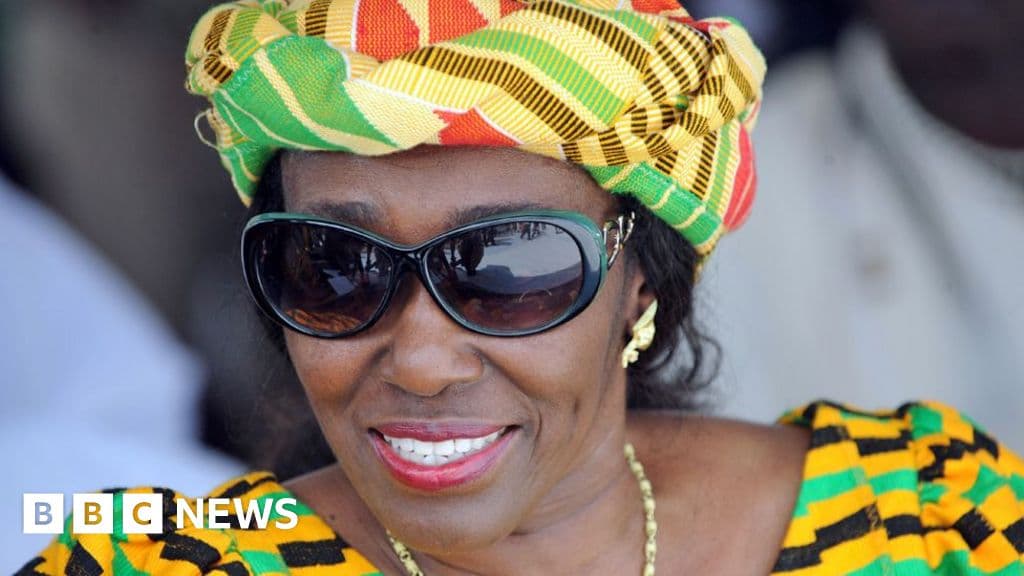We're loading the full news article for you. This includes the article content, images, author information, and related articles.
The former First Lady, who died on Thursday, leaves a complex legacy as a revolutionary force for women’s empowerment in Ghana, with a continental impact that redefined the role of political spouses.

Nana Konadu Agyeman-Rawlings, Ghana's longest-serving First Lady and a formidable force in the country's women's rights movement, died on Thursday, October 23, 2025, at the Greater Accra Regional Hospital in Accra. She was 76 years old. Her death marks the end of an era for a figure who was both celebrated for empowering millions of women and scrutinized for her political influence during her husband's nearly two-decade rule.
Born on November 17, 1948, in Cape Coast, Nana Konadu became a central figure in Ghanaian politics after her husband, Jerry John Rawlings, seized power in a 1981 coup. She served as First Lady from June 1979 to September 1979 and again from December 1981 to January 2001. Rejecting a purely ceremonial role, she founded the 31st December Women's Movement (DWM) in 1982, an organization that became a powerful engine for female socio-economic and political mobilization.
The DWM grew into one of Africa's most significant grassroots organizations, mobilizing an estimated two million women. Under her leadership, the movement established over 870 preschools and daycare centers, freeing up women to pursue economic activities. It championed literacy programs, vocational training, and provided access to micro-credit schemes for women to start small-scale businesses like gari processing and soap making.
Nana Konadu's advocacy was instrumental in significant legal reforms. She was a key force behind the enactment of the Intestate Succession Law of 1985 (PNDCL 111), a landmark piece of legislation that granted spouses and children the right to inherit property from a deceased partner who died without a will, challenging customary laws that often left widows destitute. Furthermore, her efforts were crucial in Ghana becoming the first country to ratify the United Nations Convention on the Rights of the Child in 1991.
Her political ambitions were not confined to her role as First Lady. After her husband transitioned to democratic rule and completed his two terms in 2001, Nana Konadu remained an active political figure. In 2009, she was elected First Vice Chairperson of the National Democratic Congress (NDC), the party her husband founded. She later challenged sitting President John Atta Mills for the party's presidential nomination in 2011 but was unsuccessful. Undeterred, she founded her own party, the National Democratic Party (NDP), and in 2016, became the first woman to run for President of Ghana.
Her husband, Jerry Rawlings, who died in November 2020, was a towering and often controversial figure in Ghanaian history, known for his revolutionary zeal and later, his transition to democratic governance. Nana Konadu's own legacy is similarly complex. While lauded for her tangible achievements in women's empowerment, the DWM faced criticism for its close ties to her husband's military and later civilian governments, with some accusing it of blurring the lines between state machinery and party politics.
Despite the controversies, her impact on redefining the role of a First Lady in Africa from a ceremonial position to one of active advocacy and development is widely acknowledged. Her work provided a blueprint for subsequent political spouses on the continent to engage in substantive social and political issues.
While Nana Konadu Agyeman-Rawlings's work was primarily focused on Ghana, her influence resonates within the broader Pan-African narrative of political and social development. The historical ties between Ghana and Kenya date back to the anti-colonial struggles led by their first presidents, Kwame Nkrumah and Jomo Kenyatta. In recent years, the two nations have continued to strengthen their relationship. In April 2024, Kenyan President William Ruto and Ghanaian President Nana Akufo-Addo signed seven Memoranda of Understanding to enhance cooperation in areas including trade, technology, education, and defence. This growing partnership, which includes visa-free travel agreements, is part of a wider effort to boost intra-African trade and collaboration under the African Continental Free Trade Area (AfCFTA). The empowerment models championed by figures like Nana Konadu are relevant to this contemporary context, as advancing women's economic participation is a critical component of achieving sustainable development across the continent.
Nana Konadu Agyeman-Rawlings is survived by her four children: Zanetor, Yaa Asantewaa, Amina, and Kimathi. Her passing is being marked by three days of national mourning in Ghana, with flags flying at half-mast, a testament to her enduring and complex legacy as a mother of the nation.
Keep the conversation in one place—threads here stay linked to the story and in the forums.
Sign in to start a discussion
Start a conversation about this story and keep it linked here.
Other hot threads
E-sports and Gaming Community in Kenya
Active 9 months ago
The Role of Technology in Modern Agriculture (AgriTech)
Active 9 months ago
Popular Recreational Activities Across Counties
Active 9 months ago
Investing in Youth Sports Development Programs
Active 9 months ago
Key figures and persons of interest featured in this article